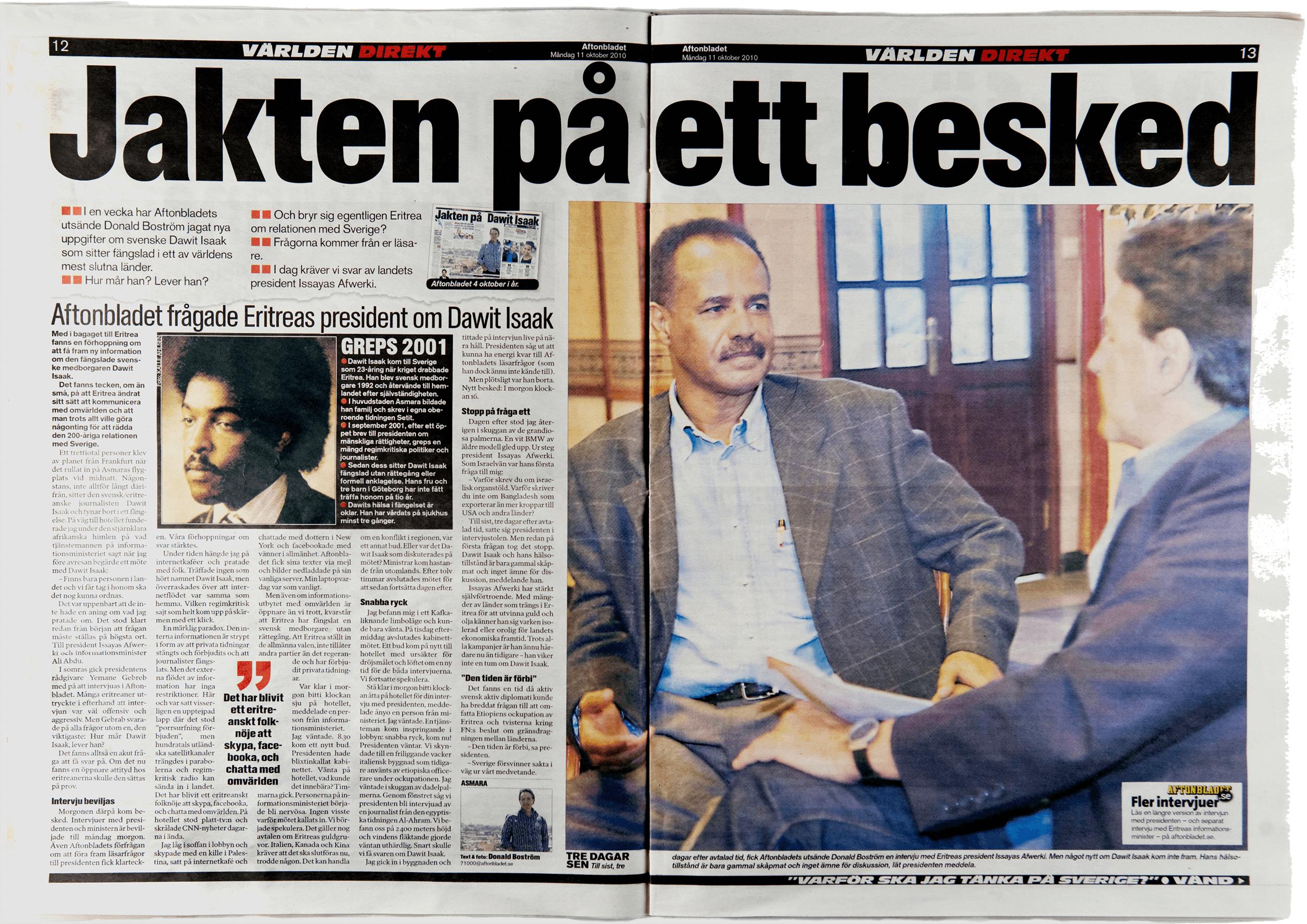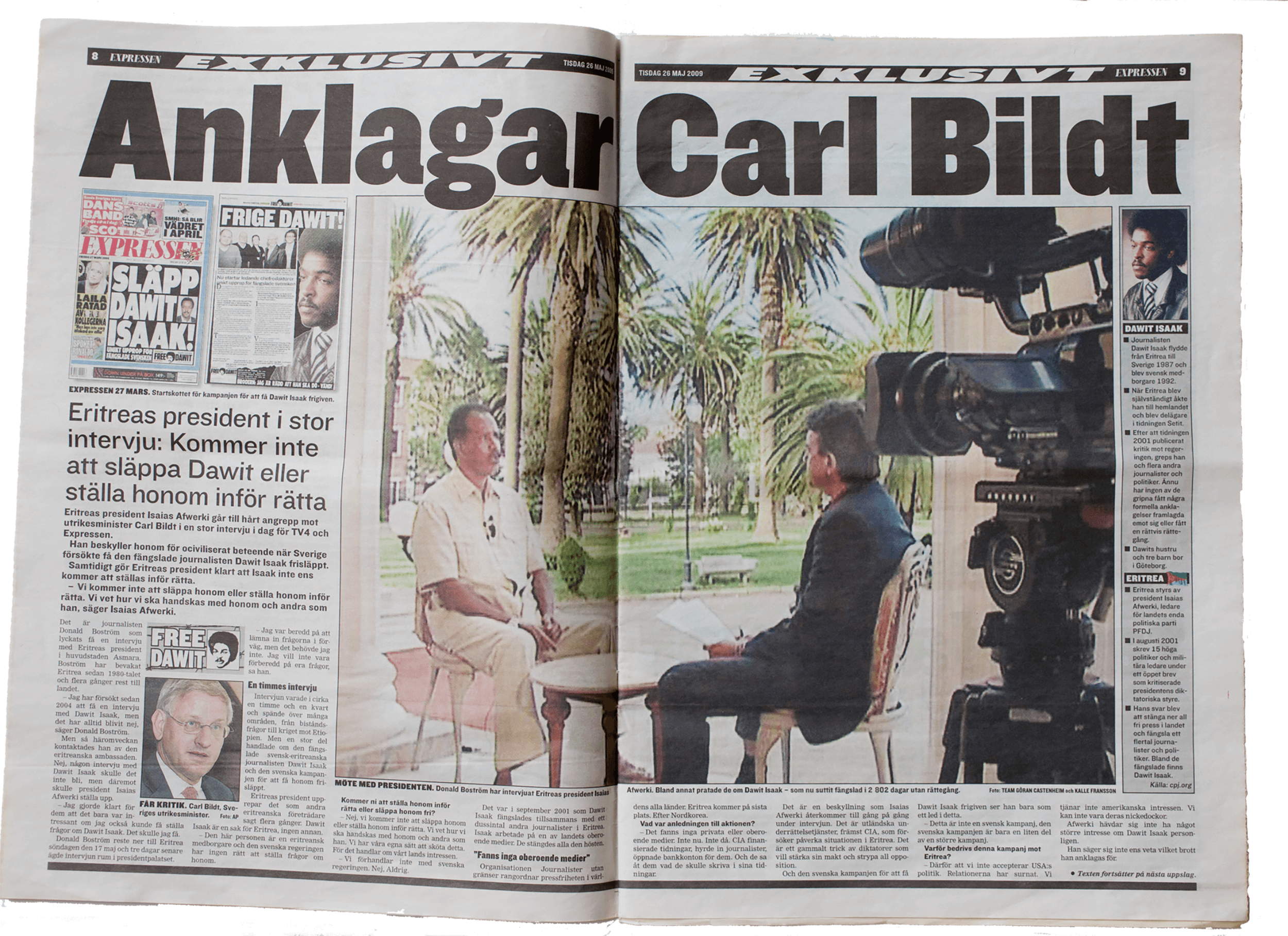Dawit Isaak
Dawit Isak
On September 23, 2001 there is a knock on the Isaak residence’s door. Outside are two security officers there to arrest the eritrean/swedish citizen and journalist Dawit Isaak.
Dawit Isaak has now been detained in prison for 16 years without trial.
Since 2001 I have monitored the development concerning Dawit Isaaks whereabouts for Swedish media, and since 2006 I have participated in diplomatic talks in Stockholm, Helsinki and Asmara between the Swedish Ministry of Foreign Affairs and Eritrean representatives. Talks and discussions about the relationship between Sweden and Eritrea and finding a way to free Dawit Isaak from prison.
Dawit Isaak was born on October 27, 1964 in Eritrea. He grow up with five siblings and his parents, who ran a small Italian deli. During elementary school, Dawit began to write and set up plays. As an adult he became an author and published several books. He wrote two novels in Tigrinya, which is one of Eritrea’s official languages. His works received positive critique and he won awards for his writings at Italian festivals. Eritrea, which has been deemed part of Ethiopia since World War II, struggles for independence and due to this conflict, Dawit flew to Sweden in 1985. Dawit becomes a Swedish citizen in 1992, and when Eritrea gained its independence the following year, he returned to the capitol city, Asmara. He married and started a family.
Eritrea has an uncompromising attitude toward all forms of neo-colonialism. All forms of trying to decide on Eritrea, or pushing them to certain decisions are not possible with this generation of leadership in Eritrea.
Swedish governments use to have the strategy and tactics to threaten Eritrea to release Dawit Isaak. That model failed for 13 long years. According to Eritrean leaders, the relationship between the countries was severely damaged during that period and directly affected the release of Dawit.
The day Dawit Isaak will walk on the street as a free man iit will be a decision from Eritrea without any interference from outside whatsoever.
When I meet with the Eritrean minister of justice in May 2016 in the capital Asmara I could see the possibilities opens for such a solution when she showed me the outline of the new law. In the new law-system the maximum punishment for the kind of crime the government accuse him for is 16 years.
Updating of the text on Dawit Isaak will take place when appropriate time is in place.
Interview for TV4 with Eritrea's president by Donald Boström





![Eritrea and Dawit Isaak. Special coverage in ETC, April 2014. Click to read [Swedish]](https://images.squarespace-cdn.com/content/v1/57b1ba7746c3c4e559a7a8c5/1508158689310-QZ09VM1QMK1HGBSY2NHM/Dawit-ETC-special-1.png)